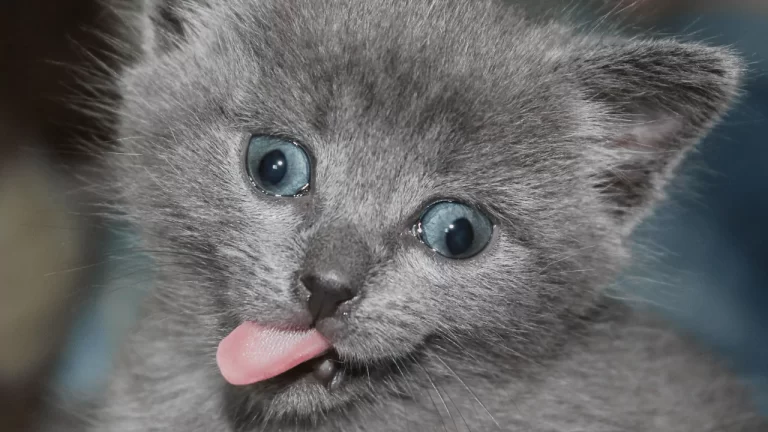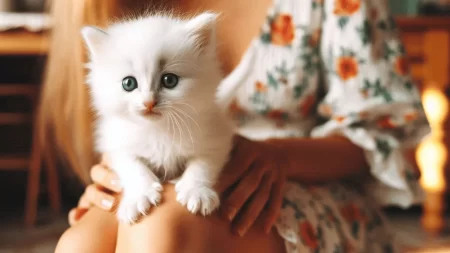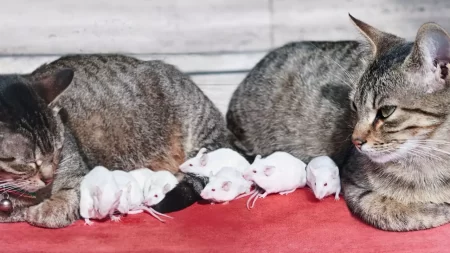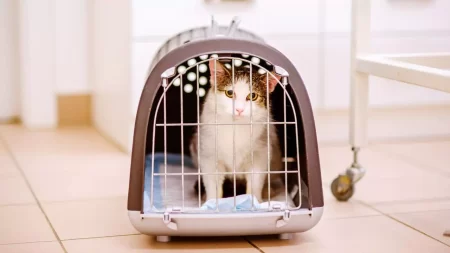Cats use their mouths for many functions – eating, grooming, and communicating. So when a cat makes strange mouth movements, it can be concerning for pet owners. These odd behaviors could arise for several reasons, ranging from harmless to more serious underlying conditions. Understanding the context around your cat’s mouth motions can help you determine if veterinary attention is needed. This article explores seven common causes of weird mouth movements in cats.
Understanding Weird Mouth Movements in Cats
There are a variety of reasons why cats make strange mouth gestures or contortions. Here are some of the most common explanations:
1. Cat chatter
Cats may rapidly open and close their mouths while producing a unique “chattering” sound. This motion, nicknamed “vacuum chewing,” often occurs when a cat is intensely watching prey or a bird through a window. The chattering mimics the fatal bite to the neck that cats inflict on their prey. It’s an instinctual behavior leftover from their hunting origins.
2. Flehmen response
The flehmen response involves a cat opening its mouth slightly and curling back its upper lip. This exposes the vomeronasal organ on the roof of their mouth, which picks up pheromones. It helps analyze scents and chemical signals. The flehmen response is completely normal and is not a cause for concern.
3. Panting
Open-mouth breathing and panting in cats can signal overheating, exertion, stress, or even heart issues in some cases. Cats normally don’t pant so this behavior deserves attention. Panting while resting merits veterinary examination to check for potential illness.
4. Something stuck in the mouth or throat
Cats may frantically paw at their mouth or make choking-like motions with their jaw if they have a foreign object lodged in their teeth, mouth or throat. Some common examples include sticks, balls, bones, or pieces of toys. This is an emergency situation requiring immediate vet assistance.
5. Dental disease
Inflamed gums, infections, and oral pain from conditions like stomatitis or tooth resorption can lead to abnormal mouth positioning and gestures in cats. Jaw chattering, drooling, and pawing at the mouth may occur. Only a veterinarian can diagnose and treat dental disease.
6. Trauma to the soft tissue
Injuries to the lips, cheeks, gums, or tongue – from falls, scratches, burns, etc. – often cause swelling. This can make it difficult and uncomfortable for a cat to close its mouth properly. Soft tissue trauma requires a vet visit to avoid complications like infection.
7. Trauma to the face or jaw
Blunt force or vehicular trauma may fracture bones in a cat’s face or jaw. This causes unstable positioning of the jaw. Bites from wildlife can also break bones or detach jaws. These types of injuries make normal mouth closure difficult and can be life-threatening. Immediate veterinary assessment is critical.
Seeking Veterinary Attention
Unusual mouth movements in cats almost always warrant vet attention, especially when paired with concerning symptoms. Here are some tips for monitoring your cat and determining if an exam is required:
- Observe behavior changes surrounding the odd mouth gestures – does it occur alongside panting, pacing, retching, crying out, changes in appetite/activity level? Take note of any contextual clues.
- Inspect the outside of the mouth and teeth – is there redness, swelling, cuts, foreign material lodged between teeth?
- Look inside the mouth if your cat will allow it – check for foreign objects, stuck food, masses, loose teeth, ulcers.
- Contact your vet promptly if mouth issues persist beyond a day or two, are accompanied by additional symptoms, or are clearly causing your cat distress.
- Seek emergency vet care if you notice choking, intense drooling, extreme lethargy, or inability to close the mouth properly. These require urgent assessment.
Do not attempt to remove objects from a cat’s mouth on your own – leave that to the vet to avoid injury. The occasional mouth contortion isn’t too concerning, but abnormal gestures or motions should prompt veterinary guidance to keep your cat comfortable.
Promoting Cat’s Oral Health
While weird mouth movements may arise acutely, ensuring your cat’s regular oral health is also important for preventing dental disease. Here are some tips:
- Schedule annual or biannual oral exams and dental cleanings with your veterinarian.
- Brush your cat’s teeth daily or weekly if possible. Use special cat toothpaste/brush.
- Provide dental treats and toys that promote chewing to manage tartar.
- Feed wet food instead of dry kibble to help reduce plaque buildup.
- Give cats clean, fresh water always. Consider dental water additives.
- Avoid stressful situations that cause cats to groom or bite at themselves excessively.
- Ensure your cat’s overall diet contains appropriate nutrients to support oral/dental health.
While the occasional odd mouth behavior is normal for cats, chronic or acute dental health issues require veterinary attention. Stay observant of your cat’s mouth movements and don’t hesitate to call your vet if something seems abnormal. With prompt care for oral health conditions and regular teeth cleanings, your cat can maintain proper mouth form and function for years to come.







